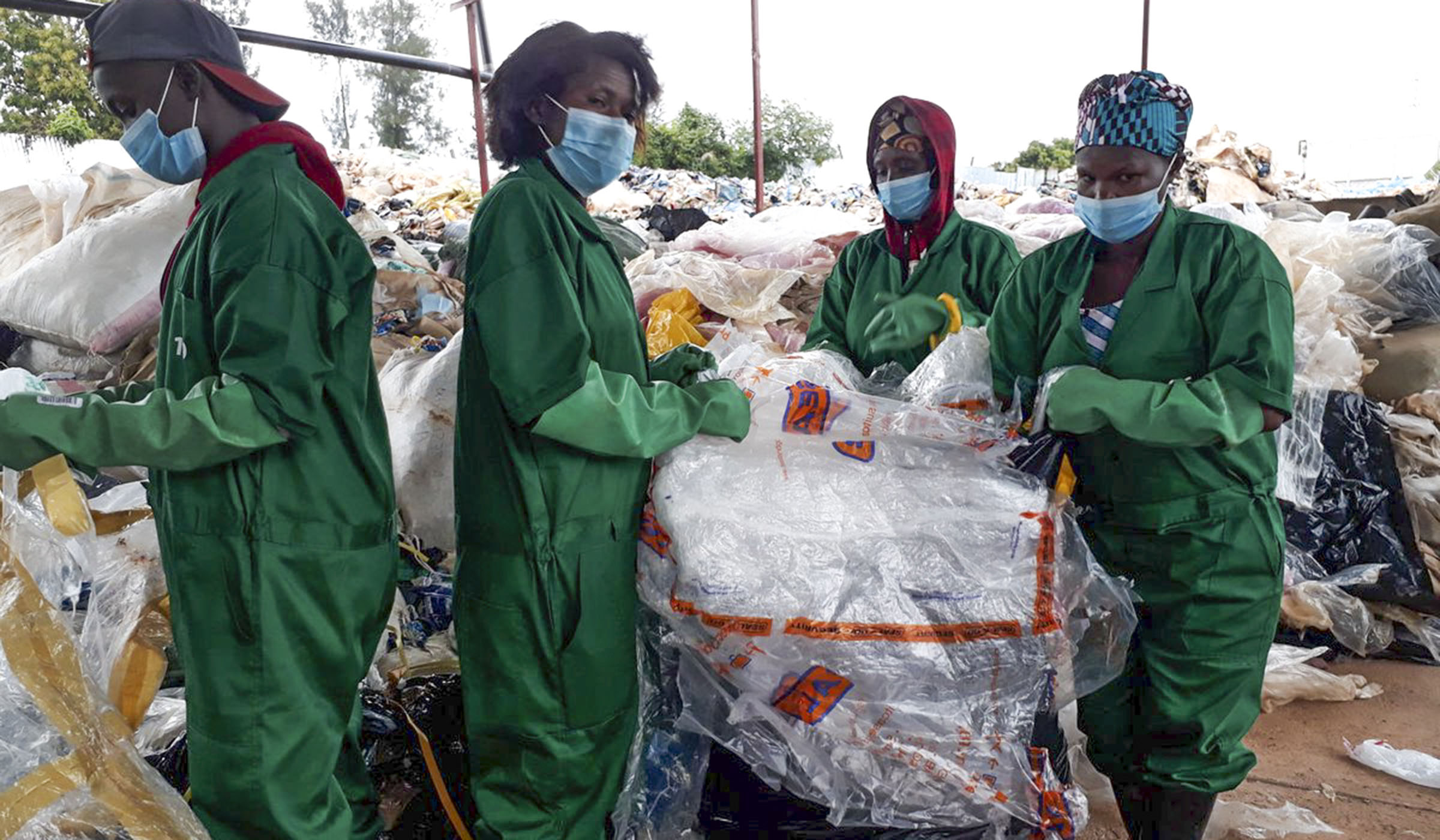Rwandan Government Going Hard On Single-Use Plastic Businesses


In January 2019, Rwandan Cabinet approved a draft law banning single-use plastics. The reason was to protect the environment from the threat of non-biodegradable materials. When the law came into effect in October 2019, retailers were given a three-month grace period to clear their stock. Following the expiration of the grace period, the government is planning a hefty fine for errant businesses.
According to the Ministry of Environment and Rwanda Environment Management Authority, the fine was to ensure the enforcement of law N° 17/2019 of 10/08/2019. Manufacturers still have a two-year grace period to change their business model. The Minister for Environment, Dr. Jeanne d’Arc Mujawamariya, said
“We should have started to penalize the dealers since the beginning of this month. They should know that banned items have alternatives. If they do not comply, from now, heavy fines are awaiting them.”
When the draft law was proposed, the government gave a two-year grace period to manufacturers of single-use plastics. Even that was termed too short by local manufacturers. According to manufacturers, it could expose them to huge losses leading to failure to pay back bank loans. Now, they can only produce plastic products without alternatives or face fine.
Alternatives to Single-Use Plastics
Following the ban on single-use plastics, the ministry is advising dealers to embrace the alternatives. For example, reusable utensils can take the place of plastic forks, cups, takeaway plates, and knives. Also, instead of balloons, decorators can turn to locally-made decoration materials. Plastic toothbrushes can also find alternatives in plant-based materials. However, it’s not only about the manufacturers. Are consumers ready to change their consumption habits?
As long as there is demand, manufacturers will always try to meet the demand. Before the enforcement of the ban, the government should have taken a step to educate the populace on the need to embrace the alternatives. With the fall of demand, manufacturers will automatically change their strategy.
However, critics may argue that most consumers only go for what is available. Thus, when the manufacturers stop the production of single-use plastics, they will have no option but to move to what is available. Rwanda has six plastic recycling plants. Nevertheless, these are not sufficient. According to the Director-General of Rwanda Environment Management, Coletha Ruhamya,
“The companies can recycle only 10 percent of plastics and, therefore, they are not sole solutions to single-use plastics. Other alternatives are needed. This means they (manufacturers of single-use plastic) can only produce plastic products that don’t have alternatives on the market and products on the exemption list.”
Associated Environmental Pollution and Fine
Plastics are not only harmful to the environment and animals but also to human health. Aquatic and terrestrial animals often feed on these plastics leading to their death. Those that survive often serve as meals to humans. Consequently, these tiny pieces of plastics are transferred to humans. Dr. Mujawamariya also highlighted some of the diseases that can result from a chemical reaction when plastics come in contact with hot food. This includes respiratory diseases, liver dysfunction, and optical complications. It can also lead to gastrointestinal problems as well as infertility, especially among men.
According to the law, single-use plastic manufacturers will be banned, dispossessed of the products and pay a fine of Rwf10 million (approx. $10,695). For importers of the product, the government will seize it and slam them with a fine worth ten times the value of their import. Wholesalers and retailers will face confiscation of their goods pay a fine of Rwf700,000 (approx. $749) and Rwf300,000 (approx. $321) respectively. Users are not exempted from the law. Those found dumping single-use plastics at unsuitable sites will pay a fine of Rwf50,000 (approx. $54).
Possible Economic Impact of the new Law
Inasmuch as the law is a win for environmental conservation, it also carves a stormy path for the economy. Businesses have to spend a lot to repackage their products. For example, Desire Uwayo, the Food Operations Division Manager at Enterprise Urwibutso says the company has spent over Rwf190 million to change one packaging line. The cost will go higher for companies with more than one product. This will possibly lead to a sharp rise in prices. Consequently, local manufacturers risk losing to oversea goods which will become more attractive for their lower prices.
According to Claudine Mukeshimana, the Chairperson of Rwanda Association of Manufacturers, the bulk of the problem manufacturers face is in packaging. According to her, there is the need to revise the draft law and change the focus to orientation. Mukeshimana believes there is a need to find a balance between environmental conservation and economic development. She said,
“Single-use plastics is a big issue for our environment and no one wants to live in a poisoned environment. But we should also keep in mind that investment in industries is key to national economic development. So let’s save both the environment and business as well.”







Responses